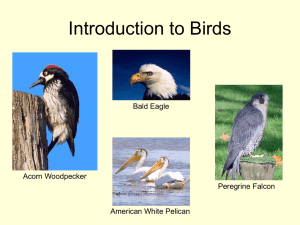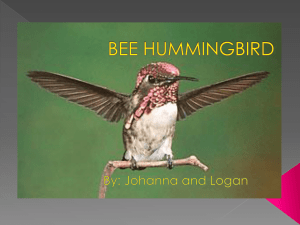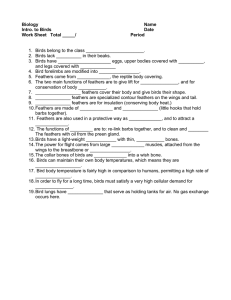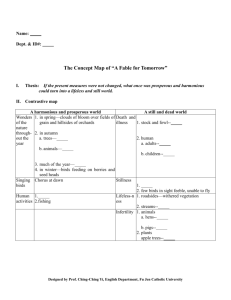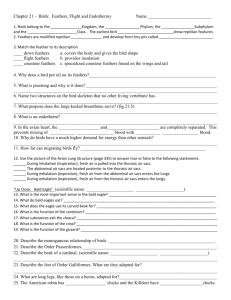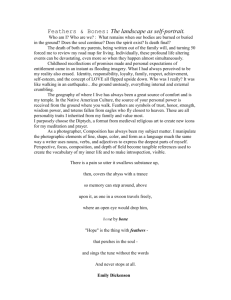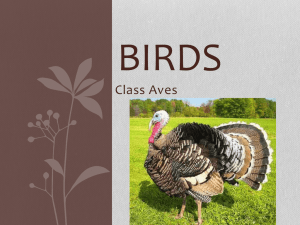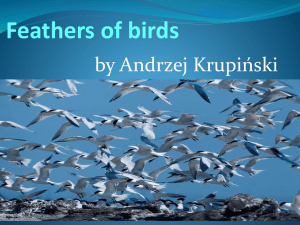Marine and Coastal Birds External Anatomy of a Bird
advertisement
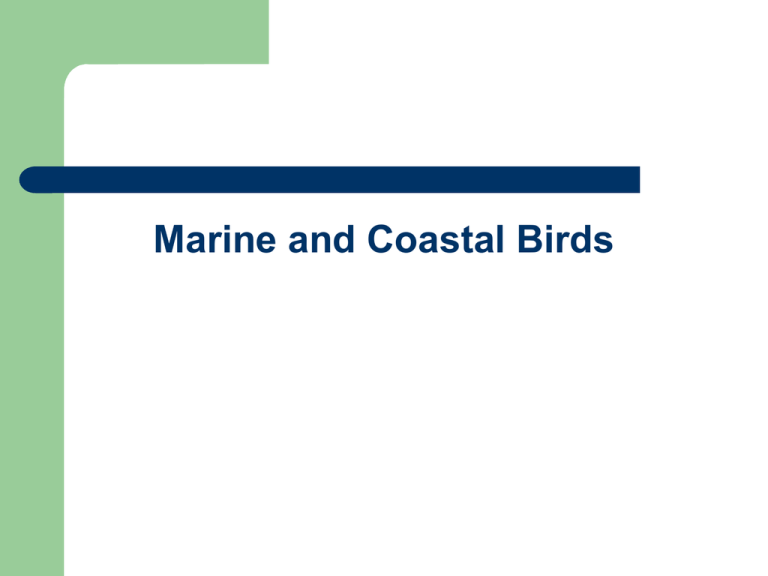
Marine and Coastal Birds External Anatomy of a Bird 1. Beak 2. Crown 3. Iris 4. Pupil 5. Mantle 6. Lesser Coverts 7. Scapulars 8. Coverts (Feathers) 9. Tertials 10. Rump 11. Tail Feathers 12. Vent 13. Thigh 14. Knee 15. Tarsus 16. Feet 17. Tibia 18. Belly 19. Flanks 20. Breast 21. Throat 22. Wattle Birds are in the phylum Chordata Class Aves – – – – – Hollow Bones Feathers Wings Lay eggs Endothermic (warm-blooded) Marine Birds Waterproof feathers – – Oil gland secretes oil Use beaks to move it around their bodies Webbed Feet Nest on land in often secluded areas Types of Marine Birds Albatross Tubenoses Salt gland to excrete excess salt ingested Curved tip on beak good for surface fishing Tubenoses continued Tubenoses have extreme migrations Mate for life Wingspans up to 3.5 m! Penguins Streamlined, hard beak (better for diving) Use wings to dive and pursue food Denser bones to help with diving Often mate for life Bad eye sight on land Penguins continued… Penguins live in cold regions They have an extra layer of fat to help keep them warm They sometimes live near the equator, but those areas get cold water currents Pelicans Pelicans have a pouch on bill that can hold water when they catch prey DDT caused a near extinction of brown pelicans in the 70s Brown pelicans are found on the TX Gulf Coast Cormorant Black birds that dive for prey Low fliers and low floaters Frigates Bird Pirates – – Attack birds in air and make them regurgitate their food Don’t enter water often because they aren’t very waterproof Long forked tail Gulls Scavengers (trash birds) – They eat anything Shorebirds in Texas Often have long legs for wading Roseate Spoonbills – – – – Eat crustaceans Live along the gulf of Mexico Red shoulder patch Spoon shaped bill Herons Long legs for wading Eat crustaceans Long billed Curlew Use bill to get worms, fish, crabs out of mud Whooping Cranes Tallest bird in North America Can only see black wing feathers while in flight Migrate to Texas from November to March (breed in Canada) Whooping Crane Migration
